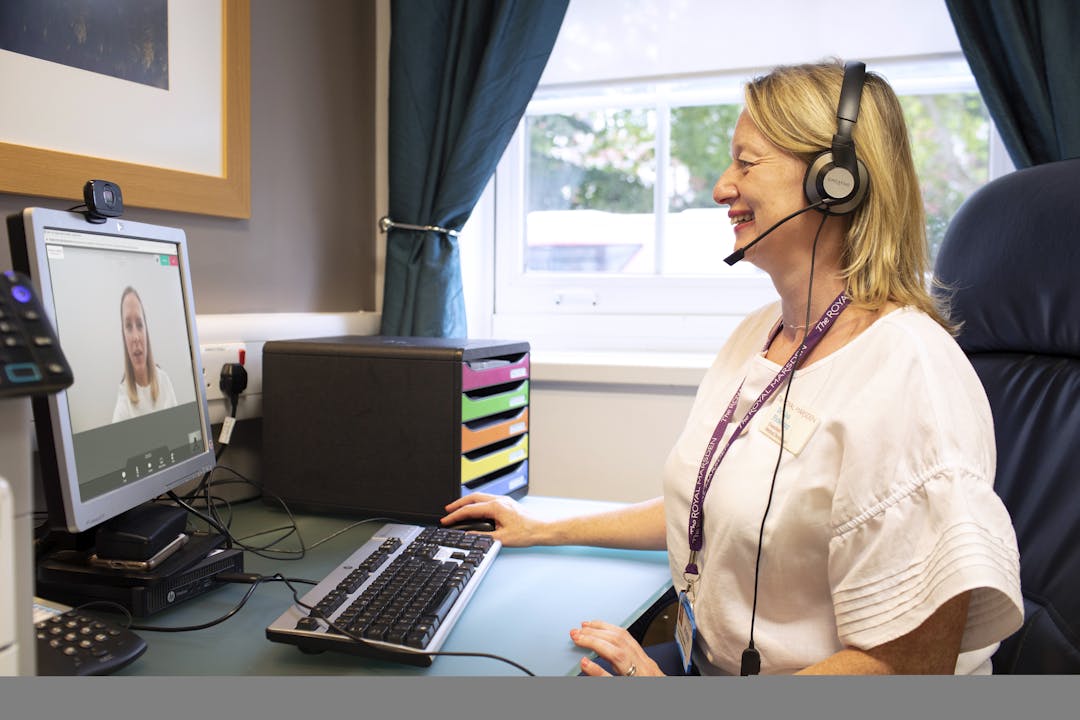Developing telehealth services in rehabilitation
Consultation has concluded

Using technology to overcome barriers to face-to-face health consultations
Background
Due to the COVID-19 pandemic the RM Therapies Department adapted quickly to make the changes needed to provide continuous safe patient care. We increased telephone assessments and follow-ups, email contacts and introduced video calls to deliver care. This is known as telehealth.
The NHS must comply with social distancing as part of the strategy to keep patients, carers and staff safe. Therefore, we expect to continue to use telehealth to replace most face-to-face outpatient appointments.
We have already started to adapt the way we use these services using informal feedback from patients and staff. There have been clear benefits, but there have also been challenges.
So now we want to reflect on this to find the weaknesses and build on the strengths. We need to look at this in a deeper way and really understand more about peoples’ experiences of telehealth services in Therapies (rehabilitation). Then patients, carers and staff will work to co-design these services together.
We are using a model that we have used successfully before in the department called ‘experience-based co-design’ methodology (EBCD). It is a way of working that enables staff and patients to design services together in partnership.
Some patients have already shared their experiences of the telehealth services, but we need and welcome new joiners to our project as we move to the co-design phase.
This will take the form of time-limited workshops. In this part of the project, patient and staff interviews have been analysed and key themes identified. Patient interviews have been summarised into a short summary video. This powerful video was used in a joint patient and staff event to focus ongoing discussions on identifying priority areas for change. This keeps the service focused on what is really needed, delivering it in a ‘patient-centred’ way to future users of the service.
What’s happening now?
Co-design groups are in set up where patients and staff are working together to make changes in the four main priority areas: inclusivity, safety, communication and peer training. We welcome other members of the public and staff to become involved in the project.
How can I get involved?
Contact Justin Roe - justin.roe@rmh.nhs.uk - for more information about how you can get involved.
Funding
The team would like to thank the Point of Care Foundation for the original training funded by the Royal Marsden Partners. The team acknowledge support from the RM NIHR BRC for the Digital Voices Platform to enhance our PPIE involvement. Also, Dr Roe and Grainne Brady acknowledge funding from the NIHR for their post-doctoral fellowship and doctoral fellowship awards respectively and Siobhan Cowan-Dickie acknowledges funding from the RM Charity for her pre-doctoral fellowship award. The RM Charity COVID fund supported the project lead, Alline Monteiro and the Audio-Visual support for the video shown at the patient and joint event. The rest of the project team carried out the work alongside their normal RM roles.


